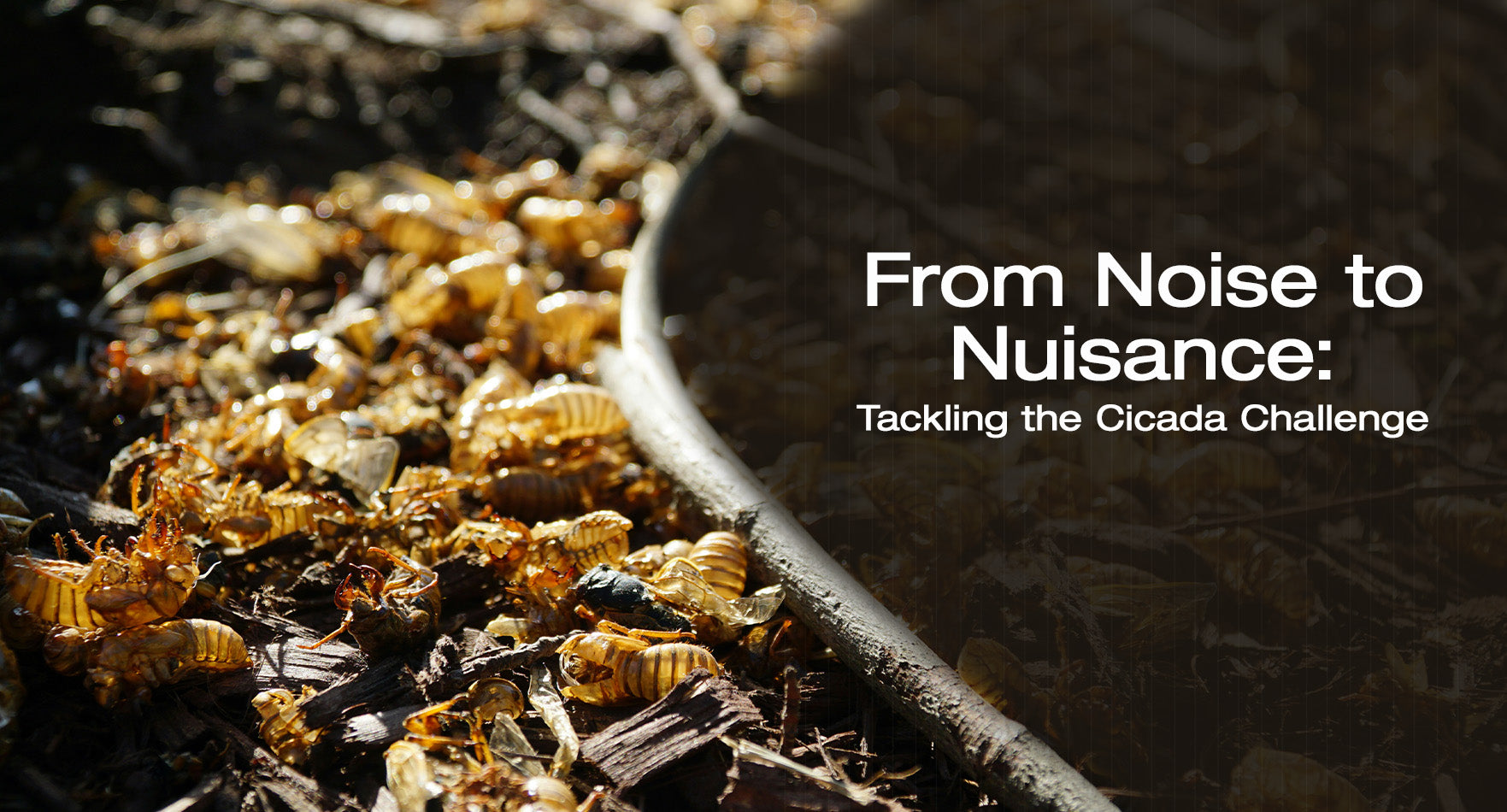As summer approaches, nature awakens from its slumber, heralding the return of warm weather, vibrant foliage, and the unmistakable buzz of cicadas. These winged creatures, known for their loud calls and periodic emergences, play a vital role in ecosystems around the world. In this blog, we'll delve into the captivating world of cicadas, exploring their lifecycle, behaviors, and cultural significance, as well as offering tips for coexisting harmoniously with these fascinating insects.
The Lifecycle of Cicadas: Cicadas undergo a remarkable transformation, spending the majority of their lives underground as nymphs. During this stage, they feed on sap from tree roots, remaining hidden from sight for several years or even decades, depending on the species. When the time is right, nymphs emerge from the soil en masse, shedding their exoskeletons to reveal their adult forms.
The adult cicadas, often referred to as "brood," then embark on a brief but intense period of activity, characterized by their loud buzzing calls and frantic mating rituals. Once mating is complete, female cicadas lay their eggs in the branches of trees before perishing, completing the cycle and ensuring the continuation of their species.
Behaviors and Adaptations: Cicadas are masters of survival, equipped with an array of adaptations that enable them to thrive in diverse environments. Their distinctive calls, produced by specialized structures called tymbals, serve as both a means of communication and a method of attracting mates. Different species of cicadas have unique call patterns, allowing them to identify and locate potential mates amidst the cacophony of sound.
Despite their imposing appearance and deafening calls, cicadas are harmless to humans and do not pose a threat to crops or vegetation. In fact, they play a vital role in ecosystem health, serving as a food source for birds, mammals, and other insects, and contributing to nutrient cycling in forest ecosystems.
Cultural Significance: Cicadas have long captured the imagination of humans and feature prominently in folklore, mythology, and cultural traditions around the world. In some cultures, cicadas are revered as symbols of immortality, resurrection, and transformation, while in others, they are associated with themes of renewal, rebirth, and spiritual awakening.
In Japan, for example, cicadas are celebrated in poetry and art for their ephemeral beauty and haunting calls, which evoke a sense of nostalgia and longing. In ancient China, cicadas were believed to possess magical properties and were often depicted in decorative motifs symbolizing longevity and prosperity.
Tips for Coexisting with Cicadas: While cicadas may seem overwhelming at times, there are several ways to peacefully coexist with these fascinating insects and appreciate the unique role they play in the natural world:
-
Enjoy the Symphony: Embrace the sights and sounds of cicadas as a testament to the rhythms of nature and the changing seasons. Take a moment to listen to their mesmerizing calls and marvel at the spectacle of their mass emergences.
-
Protect Vulnerable Plants: If you have young or delicate plants in your garden, consider covering them with netting or cheesecloth to prevent female cicadas from laying their eggs in their branches. This simple measure can help safeguard your plants while allowing cicadas to complete their lifecycle.
-
Minimize Disturbances: Avoid unnecessary disturbances to cicada habitats during their emergence period, as this can disrupt their mating rituals and cause unnecessary stress to the insects. Respect their space and allow them to carry out their natural behaviors undisturbed.
-
Educate Others: Share your knowledge and appreciation of cicadas with others, helping to dispel common misconceptions and foster a deeper understanding of these remarkable insects. By raising awareness and promoting conservation efforts, we can ensure that cicadas continue to thrive for generations to come.
Cicadas may be loud, but their presence serves as a reminder of the beauty and complexity of the natural world. By taking the time to learn about these fascinating insects and adopting a respectful attitude towards their habitats, we can coexist harmoniously with cicadas and appreciate the valuable role they play in our ecosystems. So the next time you hear the unmistakable buzz of cicadas on a warm summer day, take a moment to pause, listen, and marvel at the wonder of nature's symphony.










